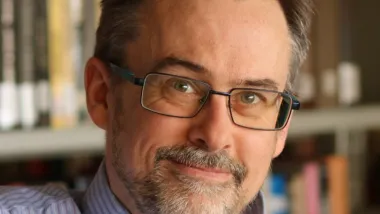In this lavishly produced, beautifully illustrated but somewhat self-edifying book, His Royal Highness the Prince of Wales argues that most of our global crises -- from climate change to poverty to our soulless built environments -- are owed to our disconnection from Nature (which he capitalizes).
In this lavishly produced, beautifully illustrated but somewhat self-edifying book, His Royal Highness the Prince of Wales argues that most of our global crises -- from climate change to poverty to our soulless built environments -- are owed to our disconnection from Nature (which he capitalizes).
According to the prince, our civilization's woes can be traced to the ideological dominance of modernism and scientific rationalism. In promoting a thoroughly mechanistic view of humanity and the world and demystifying nature, these beliefs led us to consider all plants, animals and minerals as mere economic commodities.
To the modernist worldview, writes the prince, the only valid measures are economic ones; happiness, and interpersonal relationships -- to say nothing of our bonds with nature -- count for nothing.
The alternative worldview, he argues, is evident all around us: Artistic traditions, aesthetic geometries, designs in nature and historic architecture all reveal the harmonic balance within nature that has been almost completely forgotten in the West (aboriginal cultures aside).
Despite its subtitle, Harmony actually sets out a very old way of looking at the world, one in which we are physically and spiritually seen as a part of the natural world.
To demonstrate such harmony in action, Prince Charles and his co-authors describe how people everywhere are working at the margins to restore this lost balance. Through a return to traditional agricultural practices, dramatic reductions in consumption, technological innovations, a resurgent civil society and holistic economic approaches, individuals and organizations are showing how ecological harmony can promote a high quality of life.
Not incidentally, many of these innovations are those undertaken by the prince himself. Between his Foundation for the Built Environment, the Foundation for Integrated Health, the Accounting for Sustainability project, the School of Traditional Arts, various sustainable agriculture efforts and his Start campaign to promote more sustainable consumer choices, Prince Charles has achieved results few elected officials can match.
However, this involvement has not been without controversy. The prince has routinely come under fire in the British media for using his extraordinary position in this way, potentially undermining the monarchy's constitutionally neutral role.
These attacks likely go a long way towards explaining the somewhat defensive tone found throughout the book, as well as the author's insistence on unnecessarily prefacing his (far from original) eco-sophic musings with variations on "It is my belief that ..." as if he alone were the only one arguing for a return to ecological balance.
Indeed, the main problem with Harmony is that, while the prince isn't immodest about his contributions, he can't resist inserting himself at every opportunity. Not only are there enough pictures of the prince for Harmony to serve as a royal photo album (did he really need to be on the cover? Or posing with a squirrel?), he also gives almost no due to the writings of other notable contemporary ecologists such as Joanna Macy, David Orr, Bill McKibben or Vandana Shiva, to name but a few.
Despite his valuable message and inspiring examples, perhaps Prince Charles should have taken a cue from McKibben, who noted in his 1993 book The Age of Missing Information, that a genuine contemplation of nature reveals the profound extent to which the world "isn't about you."
Harmony: A New Way of Looking at Our World
By the Prince of Wales, with Tony Juniper and Ian Kelly
HarperCollins, 330 pages, $33

Planetizen Federal Action Tracker
A weekly monitor of how Trump’s orders and actions are impacting planners and planning in America.

Chicago’s Ghost Rails
Just beneath the surface of the modern city lie the remnants of its expansive early 20th-century streetcar system.

Amtrak Cutting Jobs, Funding to High-Speed Rail
The agency plans to cut 10 percent of its workforce and has confirmed it will not fund new high-speed rail projects.

Ohio Forces Data Centers to Prepay for Power
Utilities are calling on states to hold data center operators responsible for new energy demands to prevent leaving consumers on the hook for their bills.

MARTA CEO Steps Down Amid Citizenship Concerns
MARTA’s board announced Thursday that its chief, who is from Canada, is resigning due to questions about his immigration status.

Silicon Valley ‘Bike Superhighway’ Awarded $14M State Grant
A Caltrans grant brings the 10-mile Central Bikeway project connecting Santa Clara and East San Jose closer to fruition.
Urban Design for Planners 1: Software Tools
This six-course series explores essential urban design concepts using open source software and equips planners with the tools they need to participate fully in the urban design process.
Planning for Universal Design
Learn the tools for implementing Universal Design in planning regulations.
Caltrans
City of Fort Worth
Mpact (founded as Rail~Volution)
City of Camden Redevelopment Agency
City of Astoria
City of Portland
City of Laramie






























